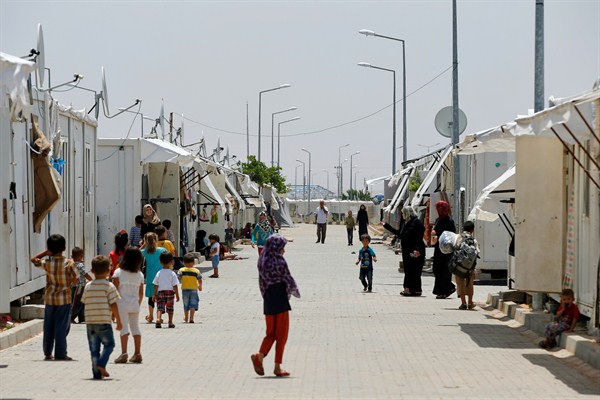After five years of relentless conflict and human tragedy, the world has begun to sense the permanence of Syria’s refugee crisis. Those who have fled violence are unlikely to return home anytime soon. Instead of seeing the crisis through a purely humanitarian prism, focusing on aid and resettlement, host countries and international donors are now looking more at how to provide sustainable livelihoods and integrate Syrians into their host communities, in particular by bringing them into the workforce.
In countries like Turkey, which hosts some 2.7 million registered Syrian refugees, and Jordan, which hosts more than 650,000, creating a legal environment for Syrians to work is key. Responsibility does not fall just on host countries, but on the international community, including donors and their partners. At last week’s United Nations General Assembly, 193 countries adopted a set of nonbinding principles regarding the treatment of refugees and migrants, promising to work toward a 2018 “global compact on refugees.” More concrete results followed at a leaders’ summit called by U.S. President Barack Obama, where humanitarian aid pledges for Syria increased by $4.5 billion and resettlement options for refugees doubled to more than 360,000. Although these efforts are vital, it is really the ability to start a dignifying life elsewhere that will decide the long-term fate of Syrian refugees.
The issue is not that Syrians who want to work are unable to. In Jordan and Turkey, despite the existence of large refugee camps, up to 90 percent of Syrians live in urban communities. Merging into city life, Syrian men often find some form of employment in both countries’ vast informal sectors, working in agriculture, textiles and construction or opening small, unlicensed shops. Only a fraction of Syrian refugee women work.

